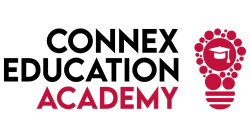Making the most of metacognition
Firstly, when we think about teaching and learning, we often focus on the end point- a good example is when we talk about learning goals and learning outcomes. Although these are important, we also need to pay close attention to the process of learning and that is where metacognition can really help. Metacognition is often referred to at a straightforward level as ‘thinking about thinking’.
By paying close attention to the learning process, we help students to become more knowledgeable about learning and support them to understand themselves as learners. Combine this with enabling learners to know what to do about their learning and we begin to build their confidence and independence.
There are three phases of metacognition-planning, monitoring and evaluation. Reflection is a golden thread across all three phases:
- the planning phase is where learners begin to think about how they will approach a learning task
- the monitoring phase is where learners self-regulate and check if they are on track or review if the strategy they are using is working. At this point, they can make changes to their approach.
- the evaluation phase is where they reflect upon how well their strategy worked in relation to achieving their learning goal, or they might consider what they would do differently next time.
To make the most of metacognition, here are five tips that you can use in your own practice:
- Make the thinking and learning process visible by modelling metacognitive talk e.g. What information do I need to do this? How long do I need to spend on it? Am I on the right track here; maybe I need to double check?
- Make time to draw on prior knowledge and find out what learners already know. Dig deep with this and make connections across topics, subjects and real life. This will help them to connect prior knowledge to new learning and build their learning roadmap.
- Ask more process questions; research from Rosenshine (2012) and Good and Grouws (1979) suggest that this can have a positive impact, particularly in Maths. Good examples include ‘How did you work that out? or ‘what was the most important step you took?’
- Encourage divergent thinking and criticality with learners by asking questions such as ‘are there other strategies that could be used here?’ or ‘how is this approach helping you?’
- Be invitational and create a safe space for learners to share and articulate their thinking for example ‘What are you thinking here, Jo?’
Written by guest course writer Helen Morgan.
Helen Morgan is a consultant, guest author and writer for Thirsty Scholars Partnership.
Helen has written our recently launched courses Awareness of Metacognition. She is also a regular presenter on our After the Bell podcasts

